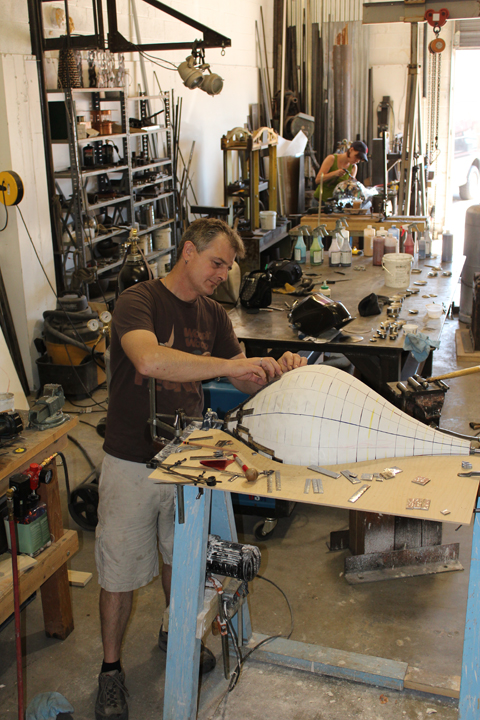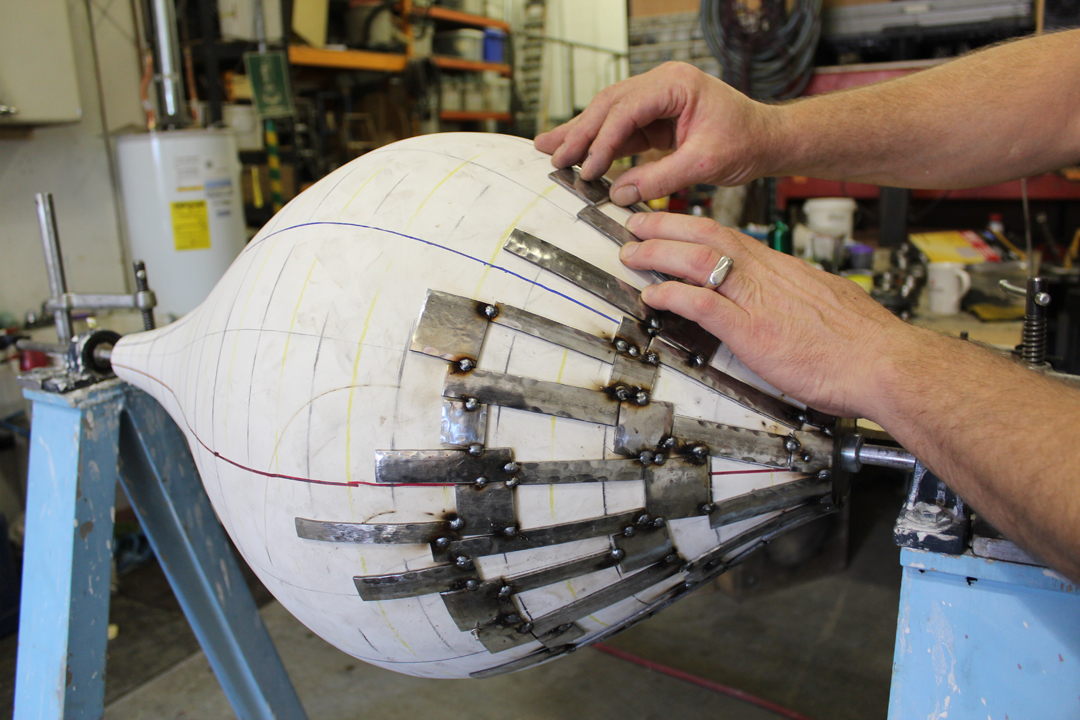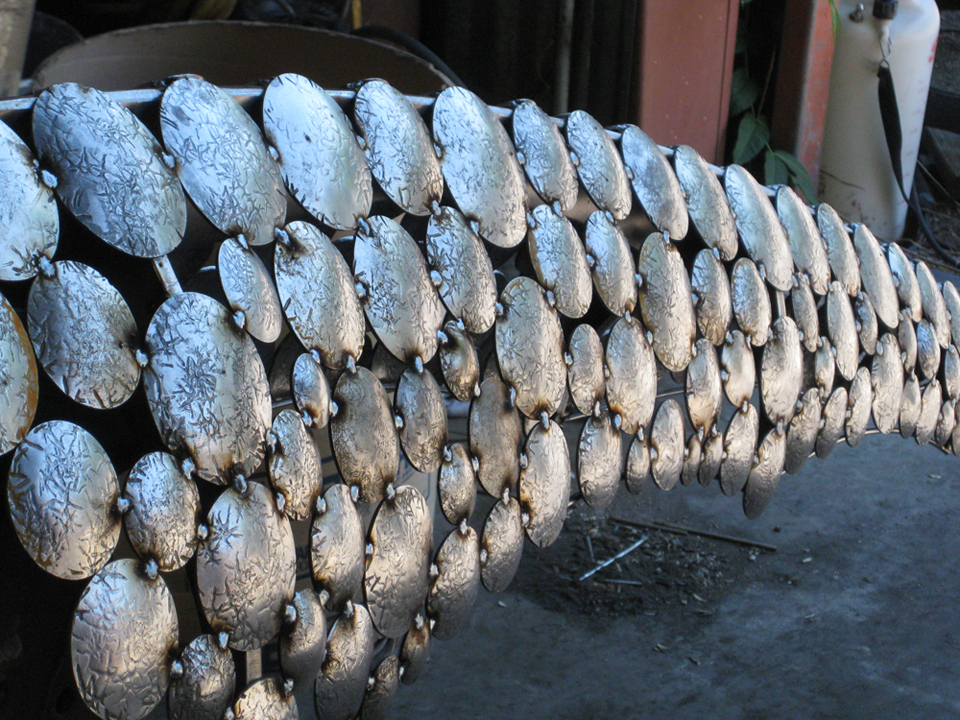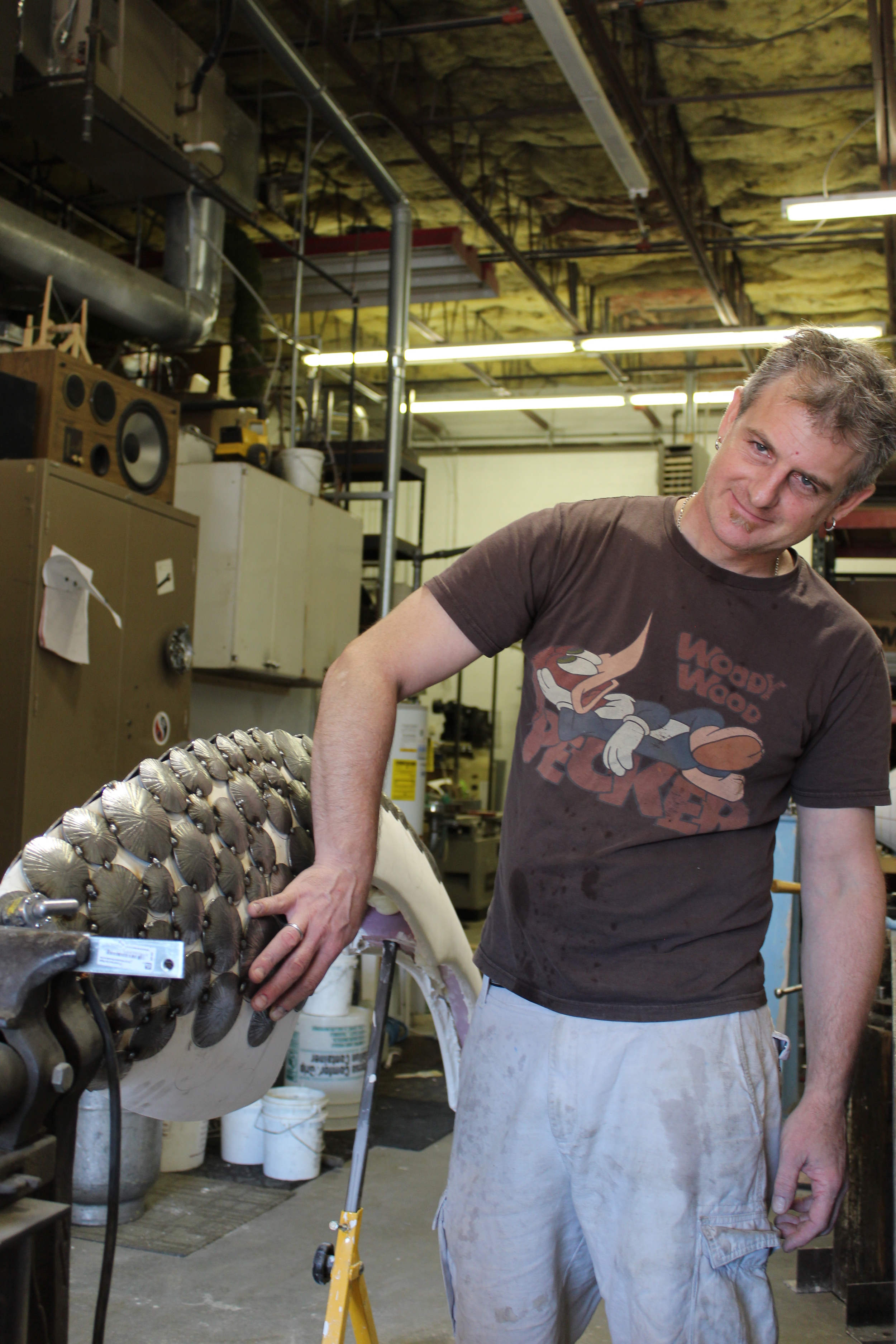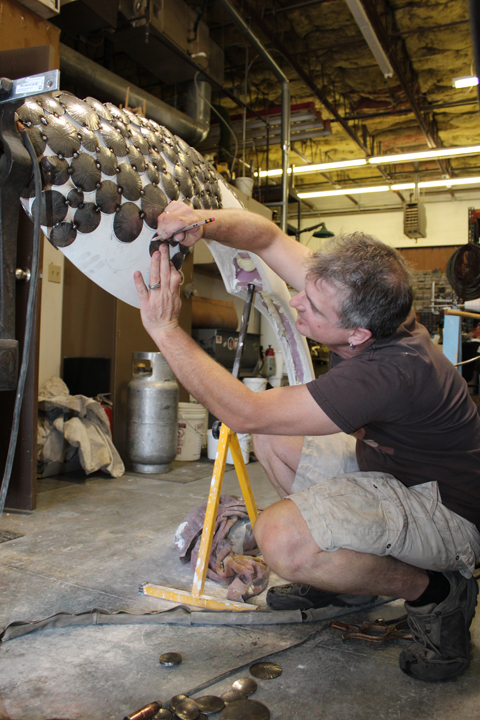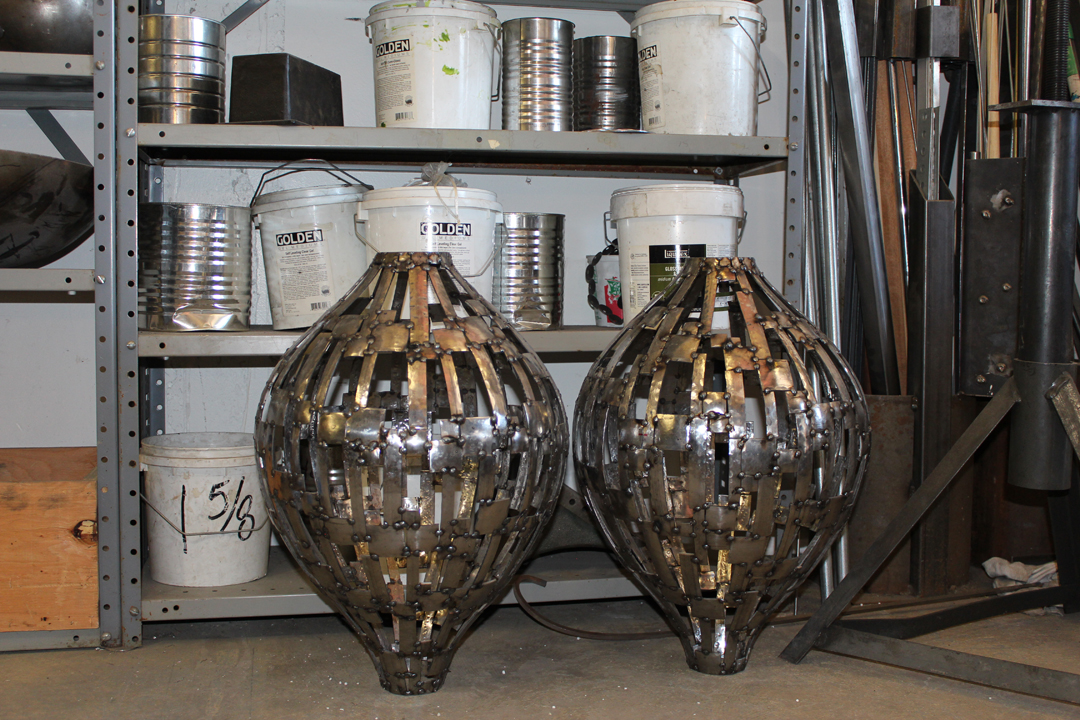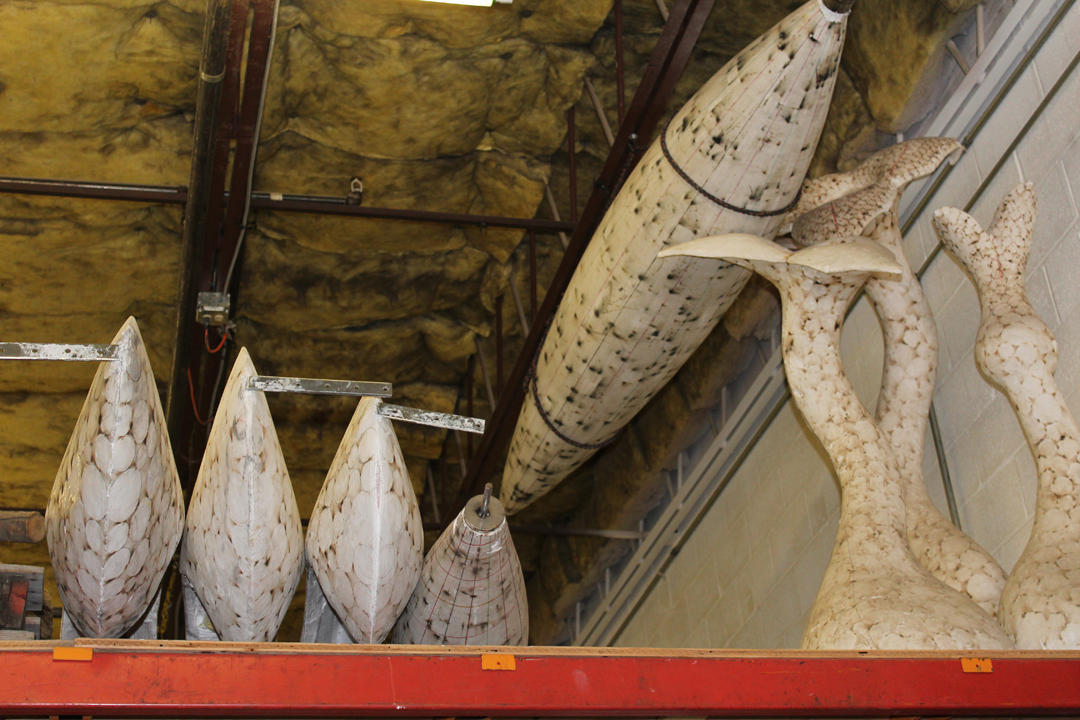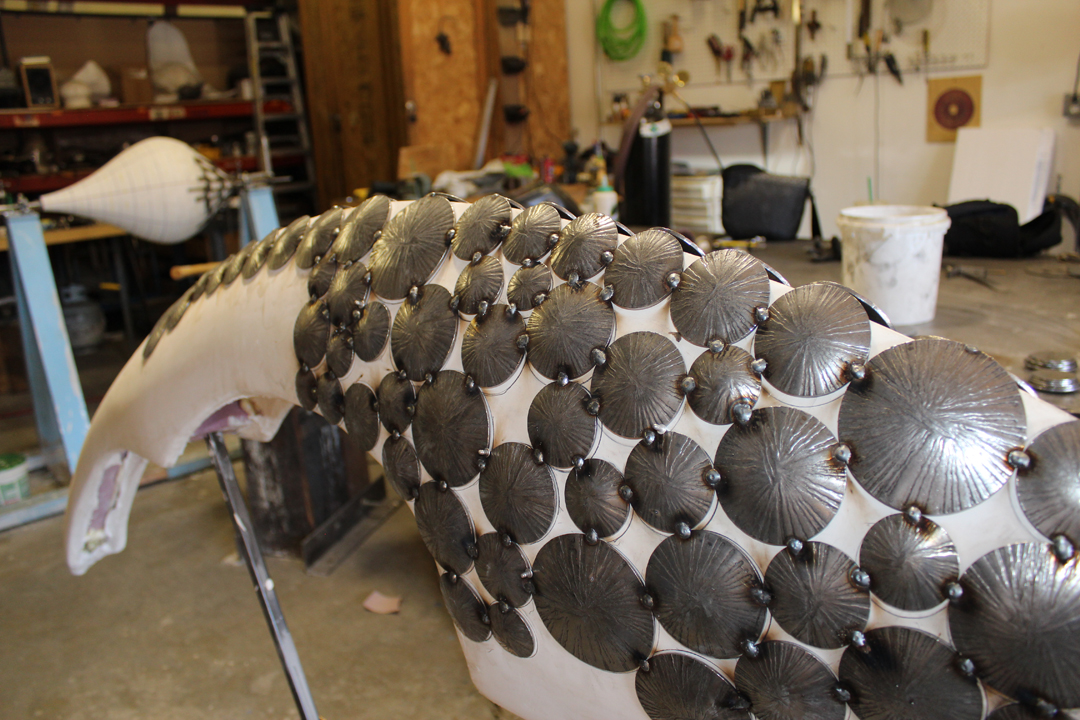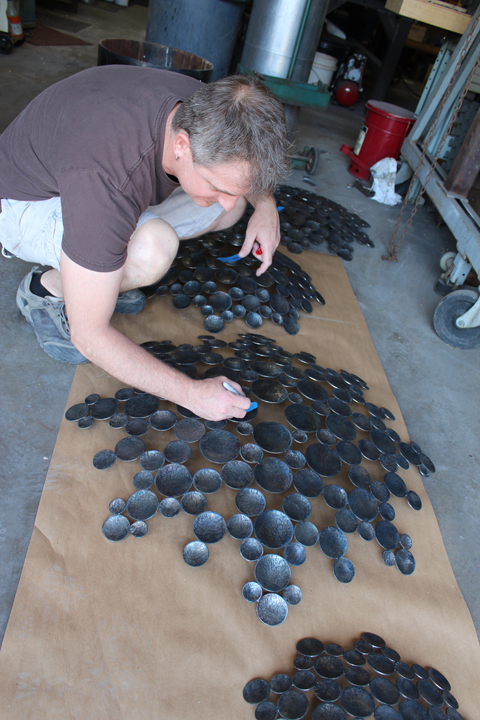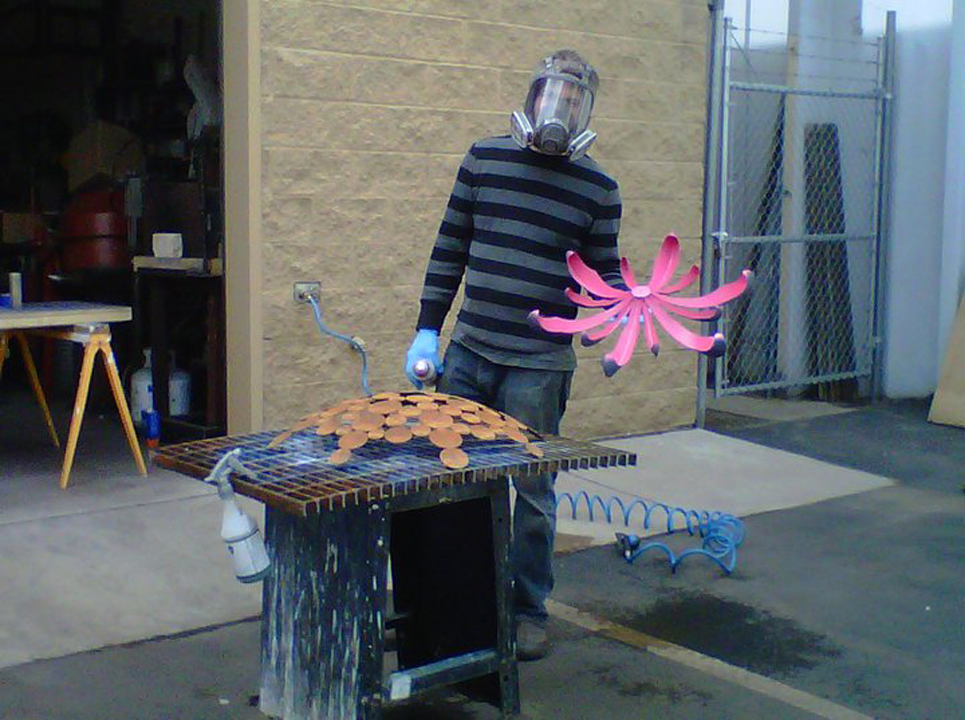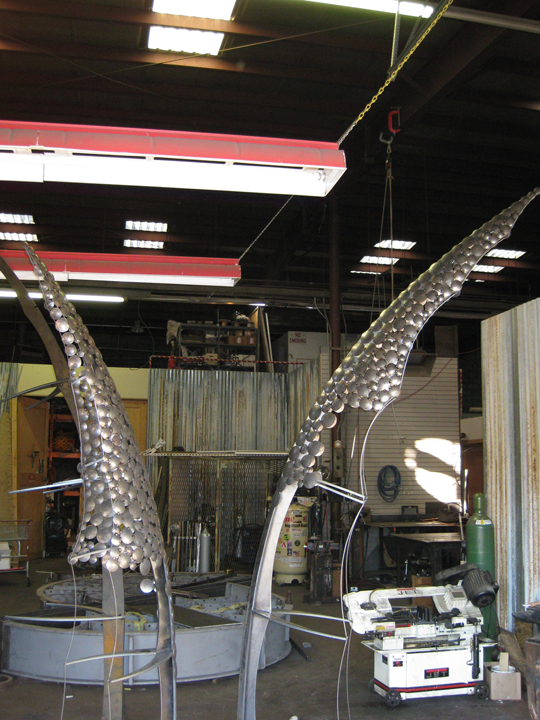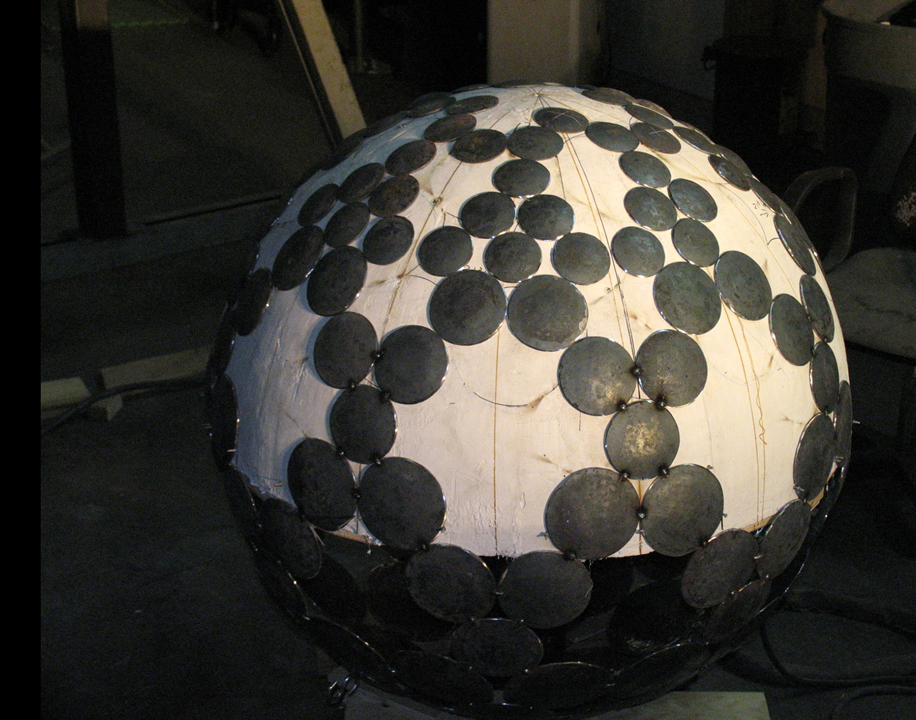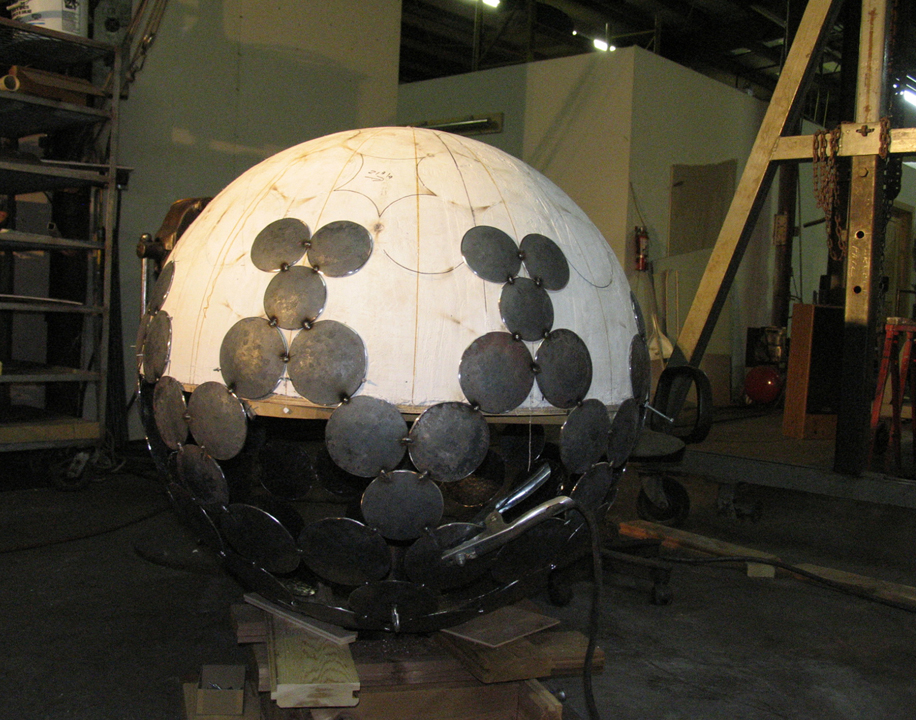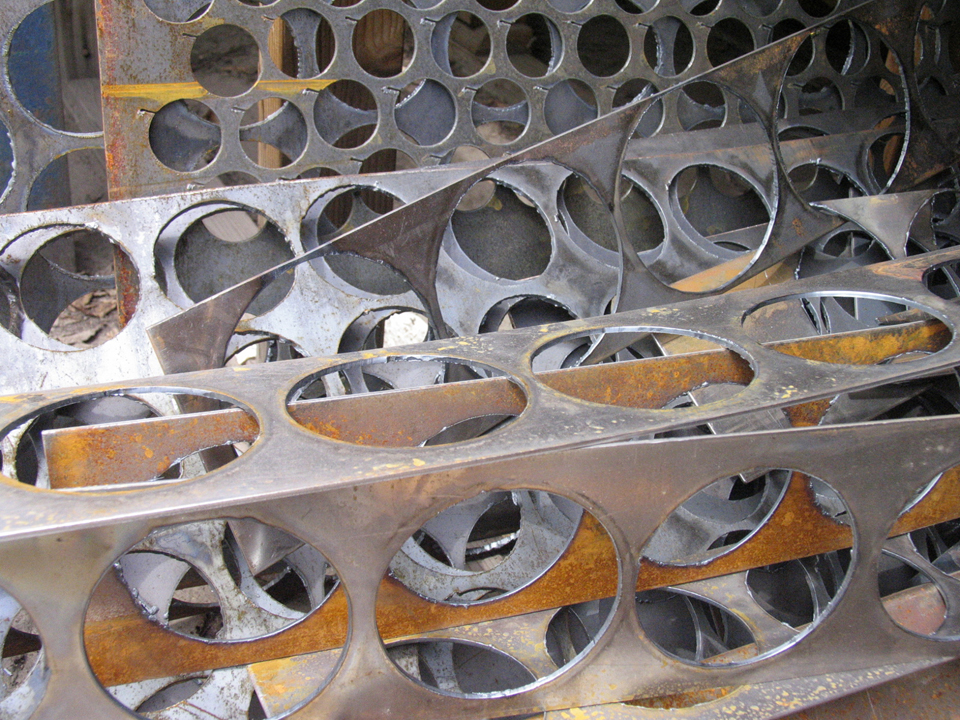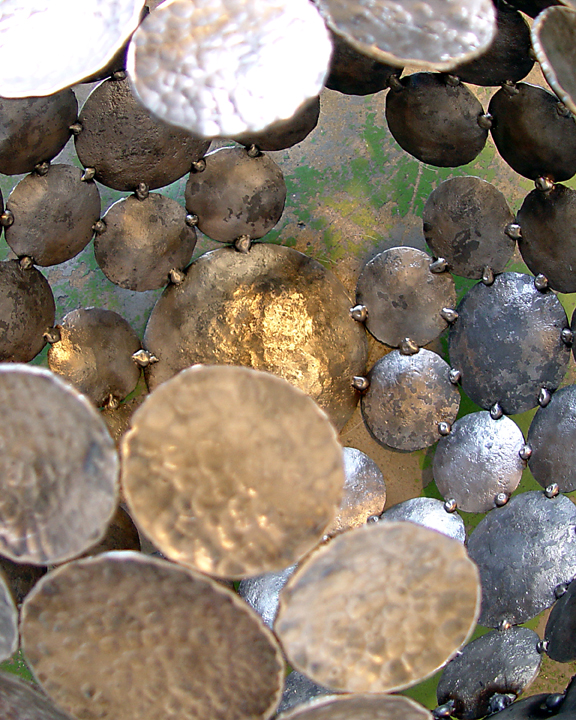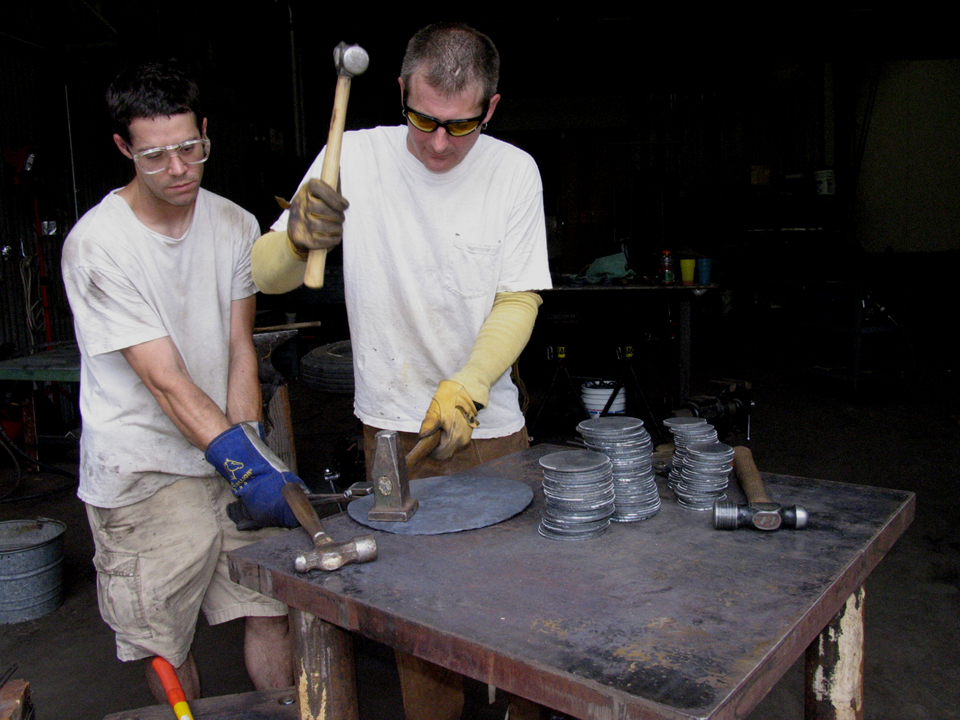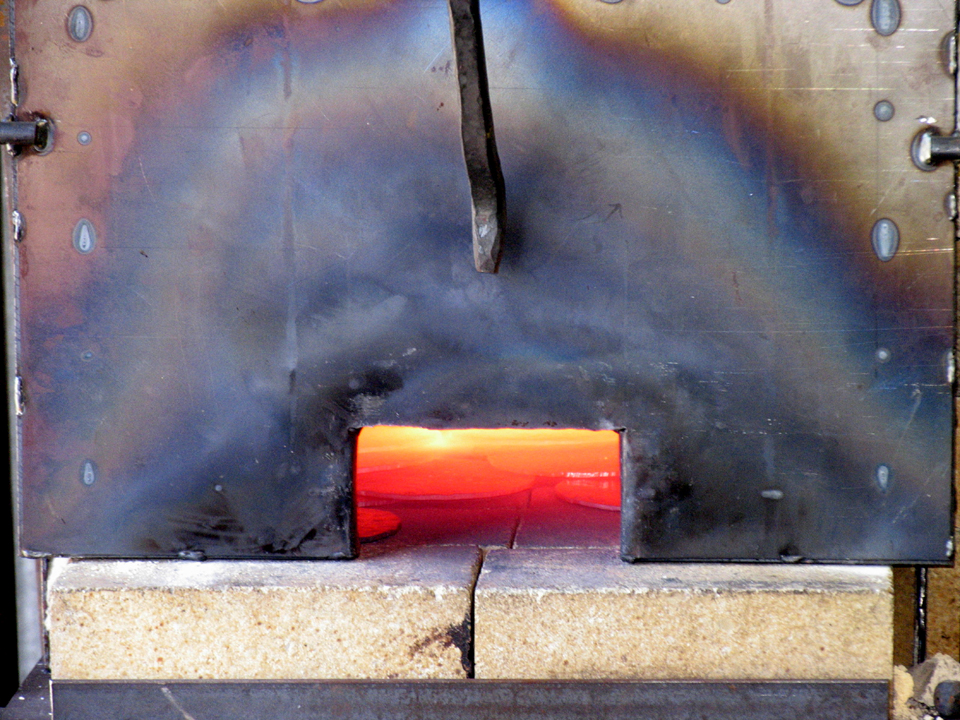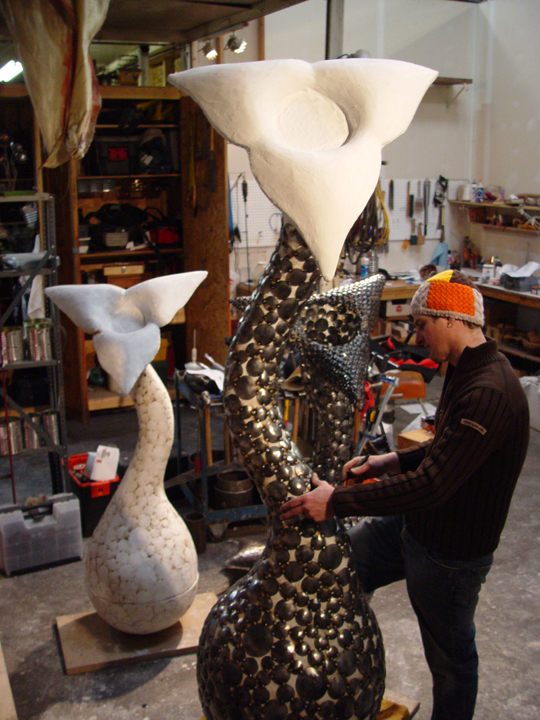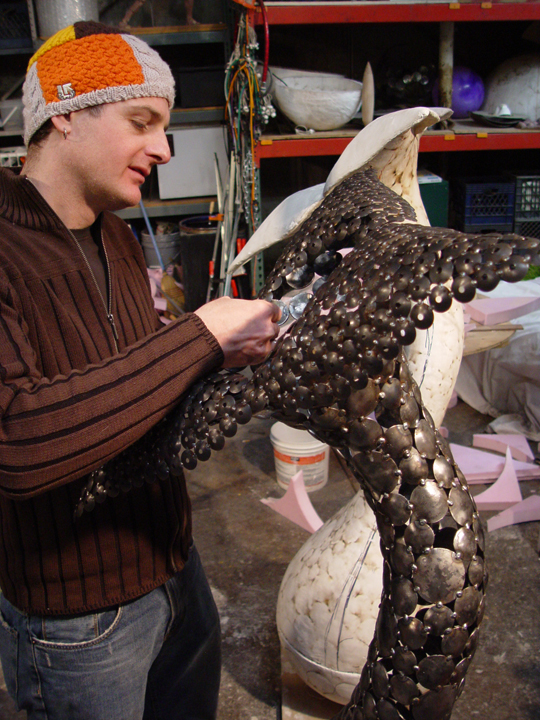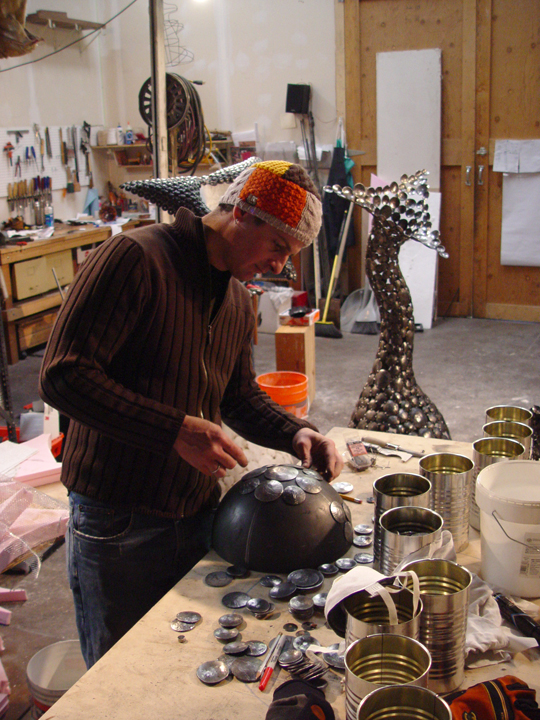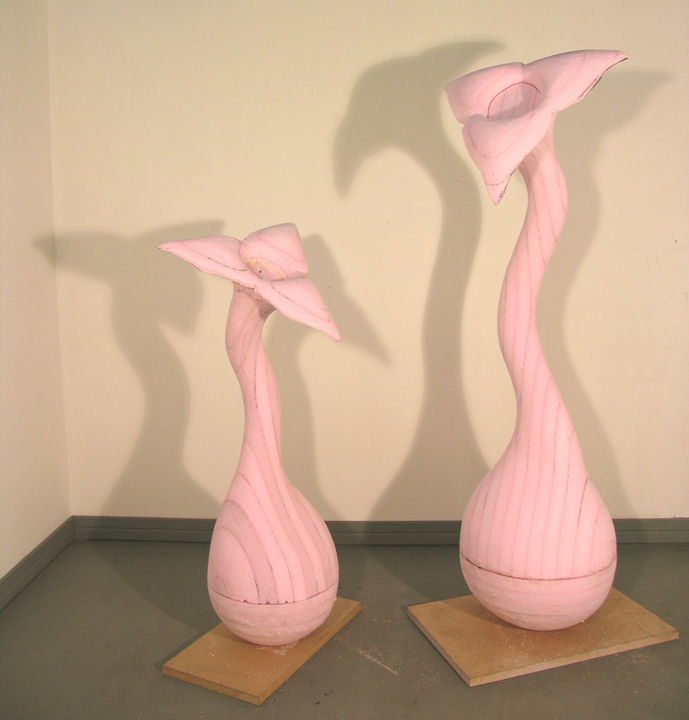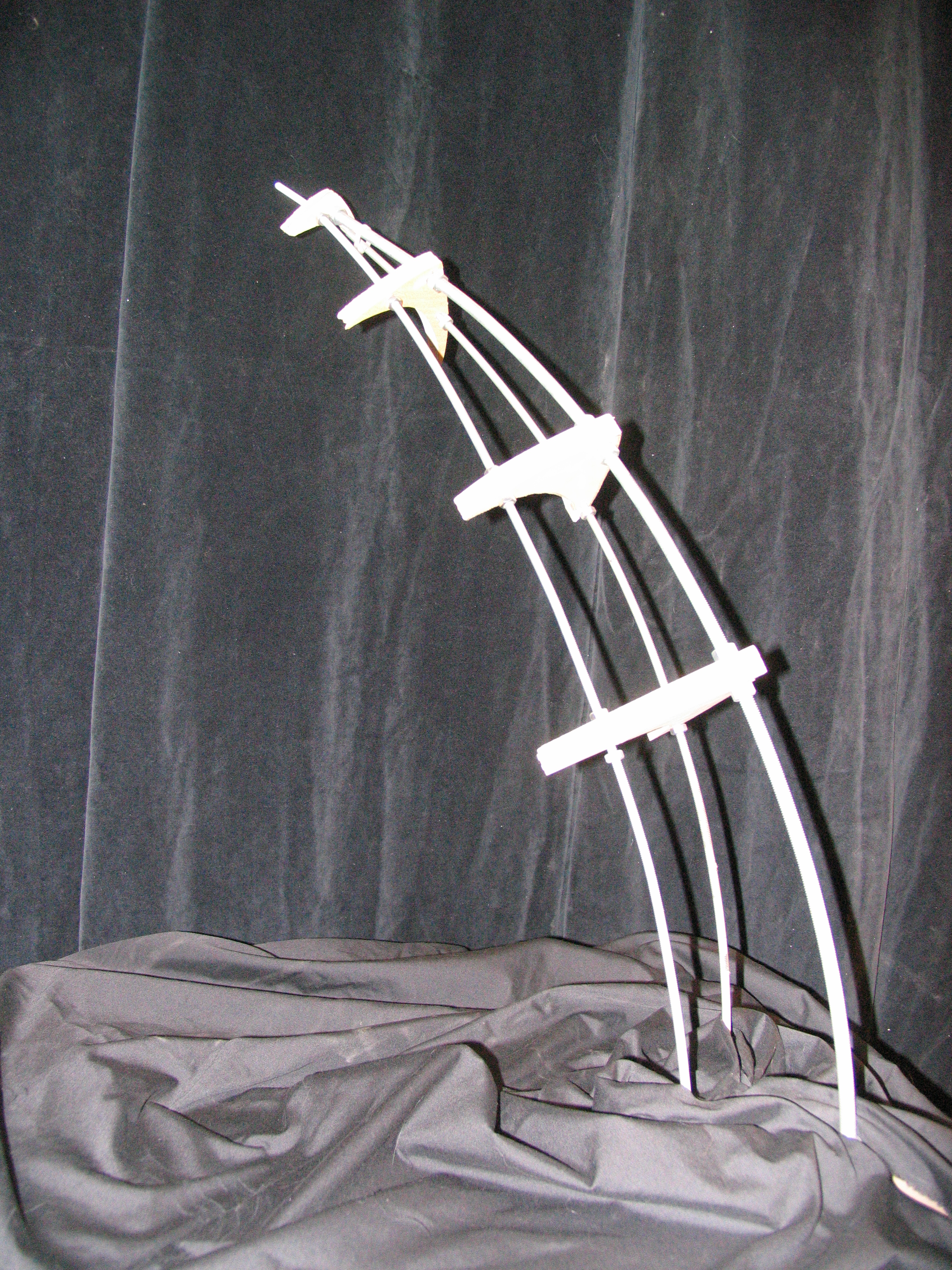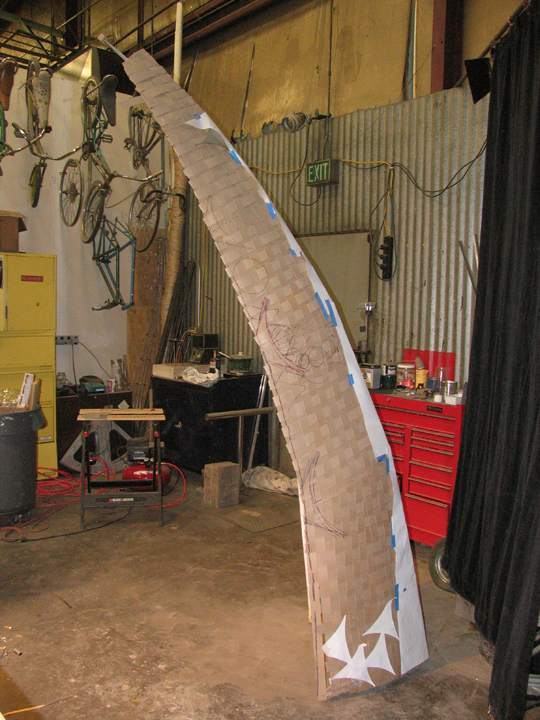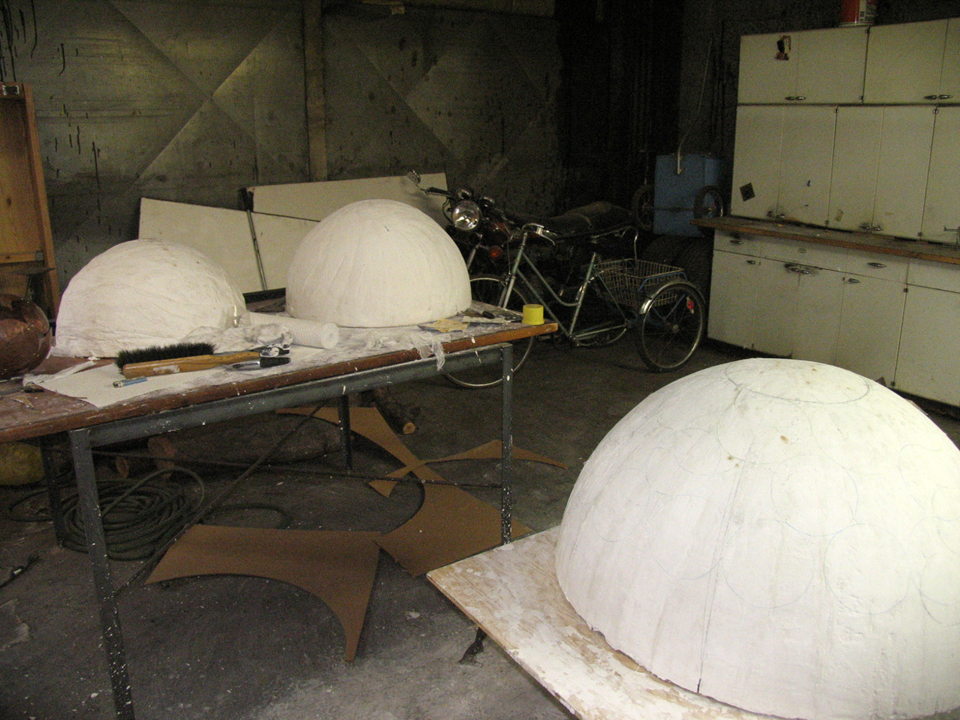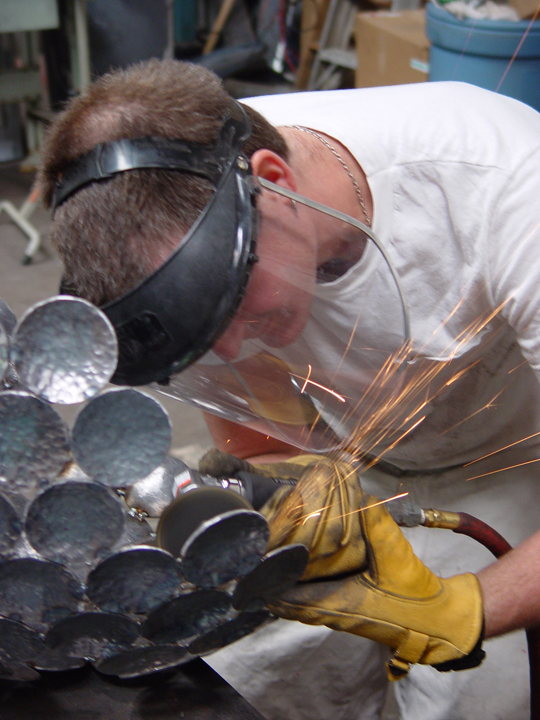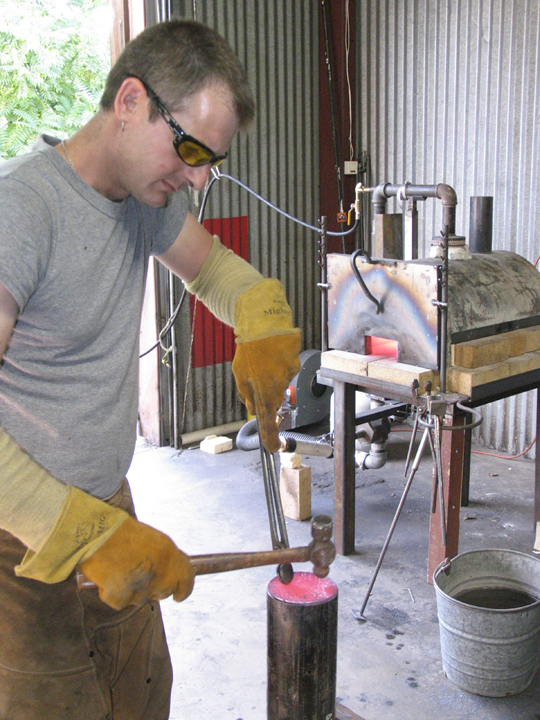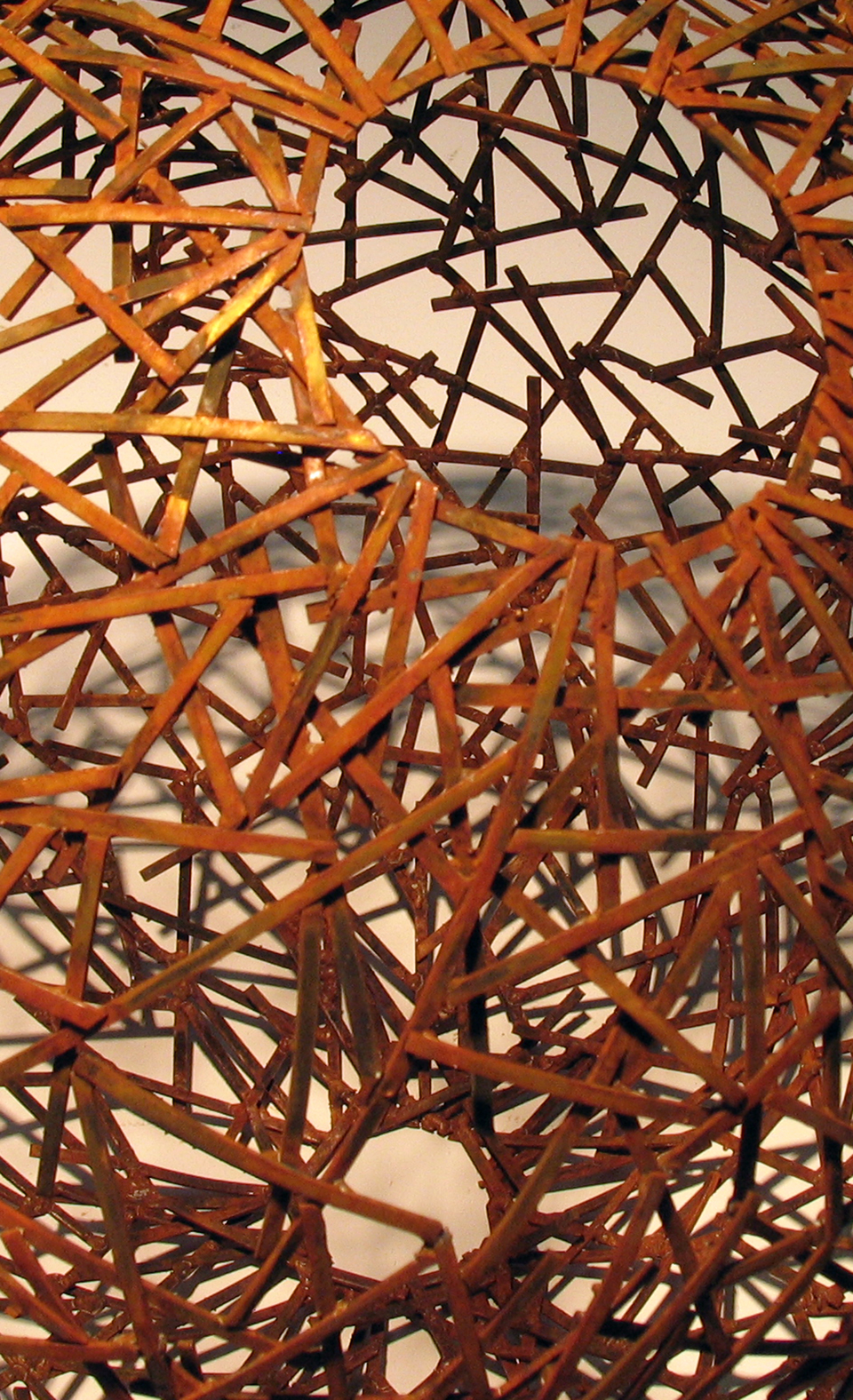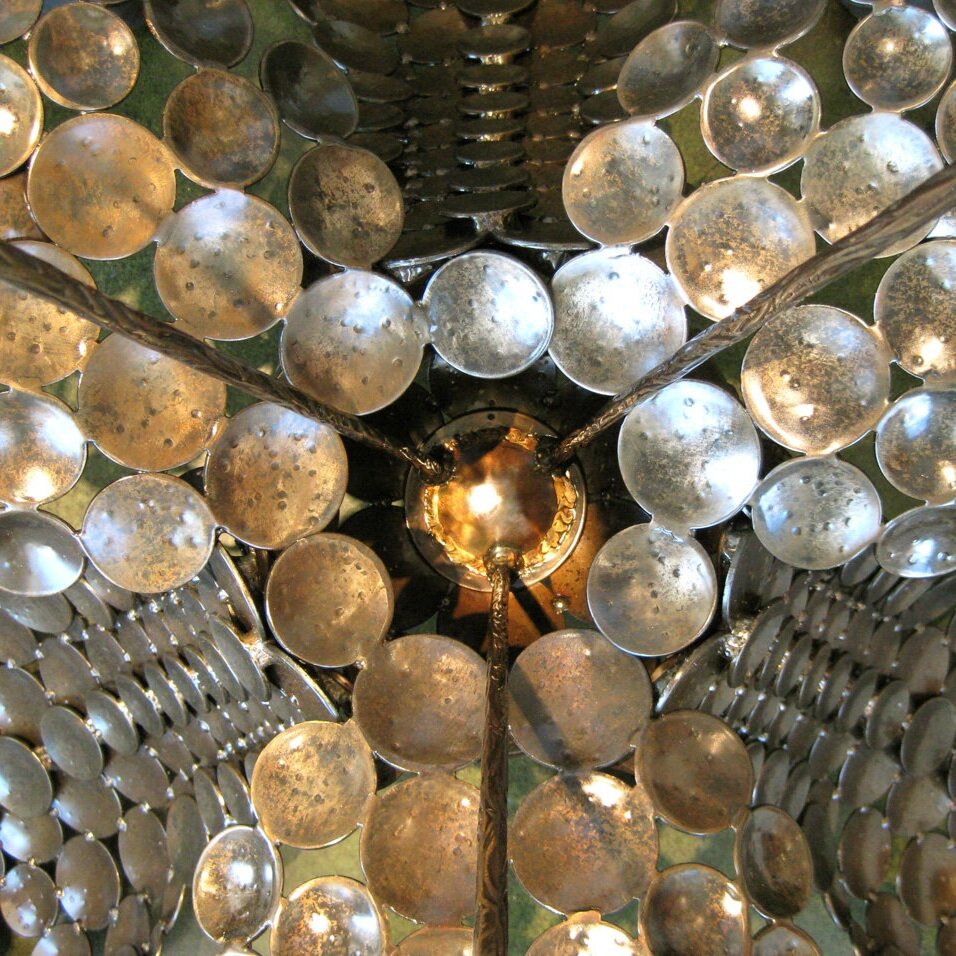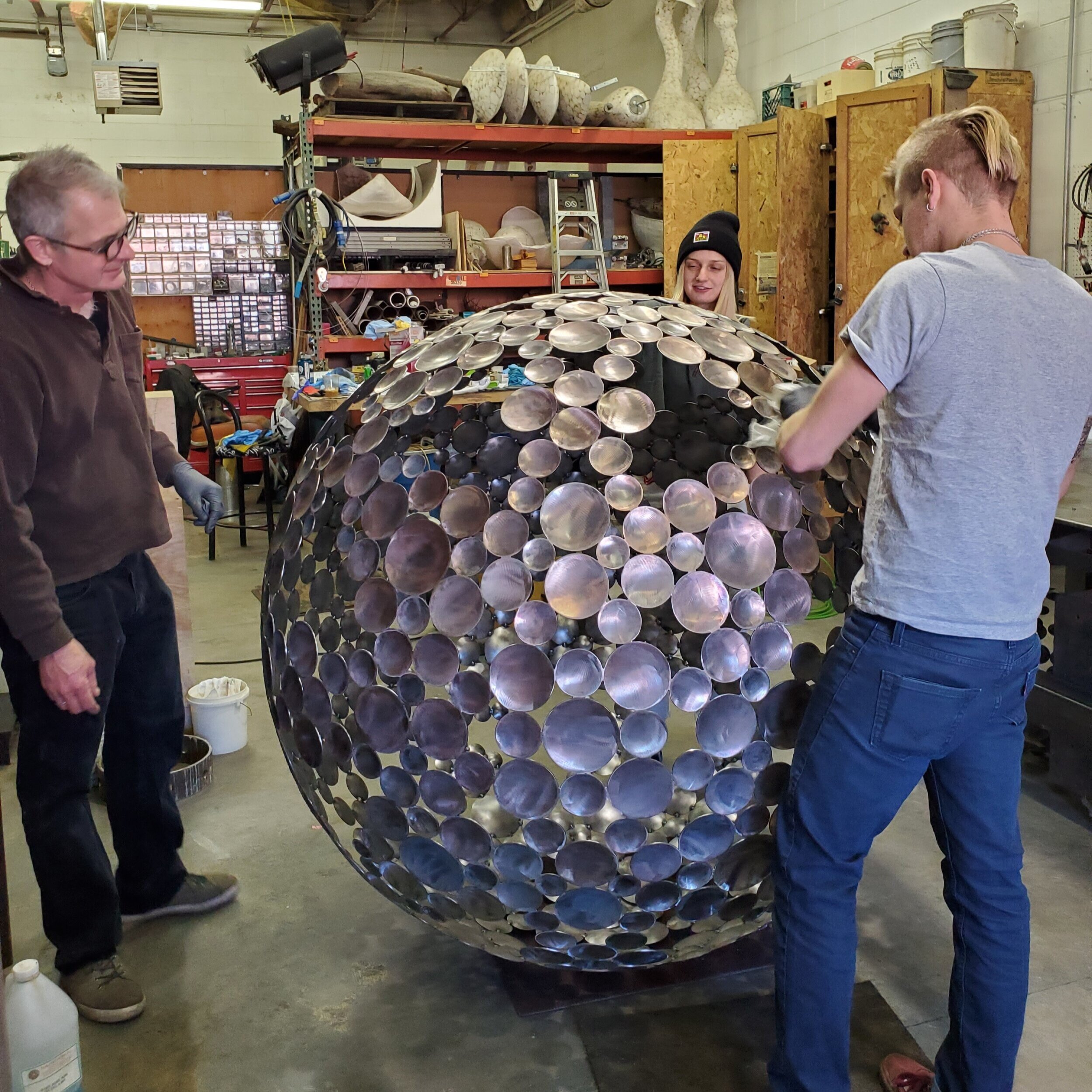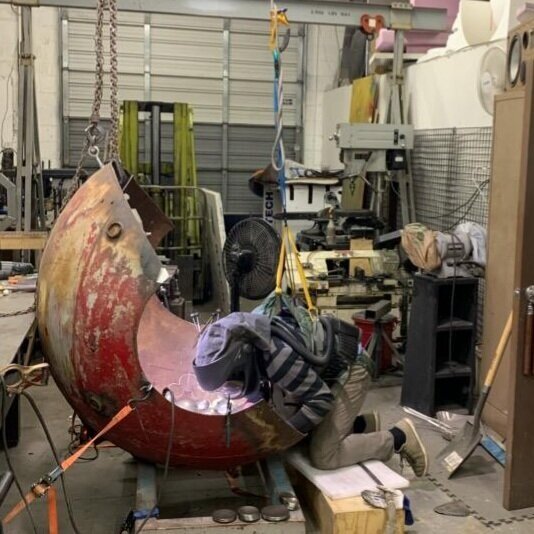TYLER AIELLO - Artist & Educator
"Tyler is a true craftsman. He builds his sculptures in a thorough and deliberate method, many times using machines and tools that he has constructed on his own. The result is an delicious display of metals that references natural creations and scientific analysis."
-McGrath & Braun Art Consulting
ARTIST STATEMENT
My sculpture blends my interest in science and the natural world with a love of process and materials. Fundamentally, I am interested in exploring the intersection of art, science and community. I enjoy working with industrial materials to produce contemporary sculpture that references old-world craftsmanship. My pieces are composed of numerous small metal and wooden components which unite to create organic, biomorphic forms. Often, I incorporate light to emphasize the work’s negative space and create shadow which extends the work’s effect to the surrounding architectural environment. For inspiration, I draw from a variety of sources including microbiology, botany and chemistry – often incorporating mathematics. In preparing for my work, I have had the good fortune of consulting with NASA and the scientific community which has provided constant inspiration. Throughout the process, a focus on detail is critical – both in terms of looking at the minute details in nature, as well as the detail present in each piece.
My studio practice involves a complex, laborious process in order to infuse my work with the craftsmanship and detail I find important. I hand-cut and forge numerous small steel components, often engineering my own specialized tools and hammers. I form and texturize the metal components so that each piece has individual nuance. These pieces are then welded together over carved plaster molds to create organic, abstracted forms. I spend considerable time finishing the work through polishing and patinas to emphasize the surface quality. The process is important to both the aesthetics of the work, as well as having a conceptual intent. I am interested in the concept of “gestalt,” individual parts becoming wholes, which is a concept critical to chemistry, biology, and society.
